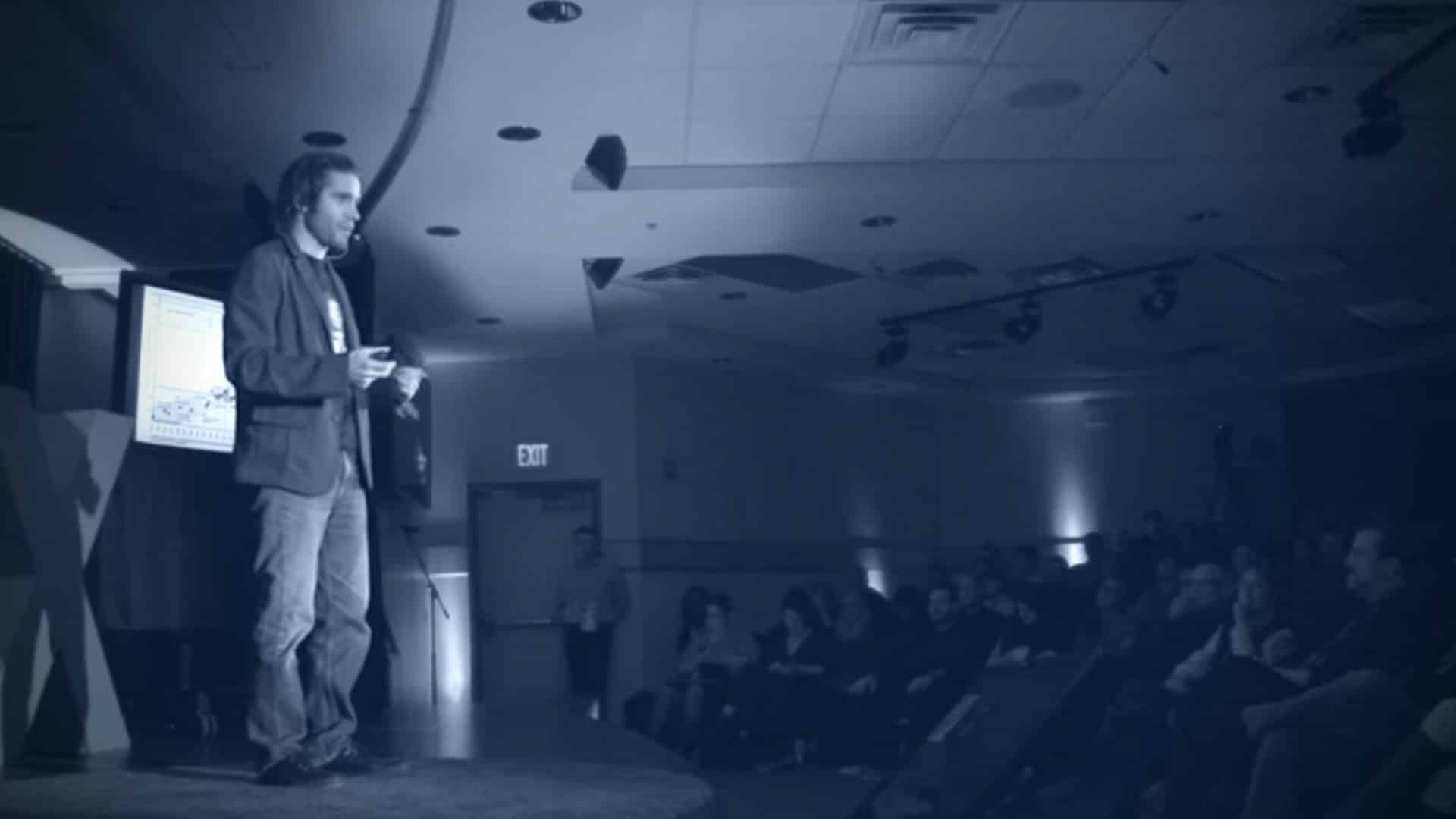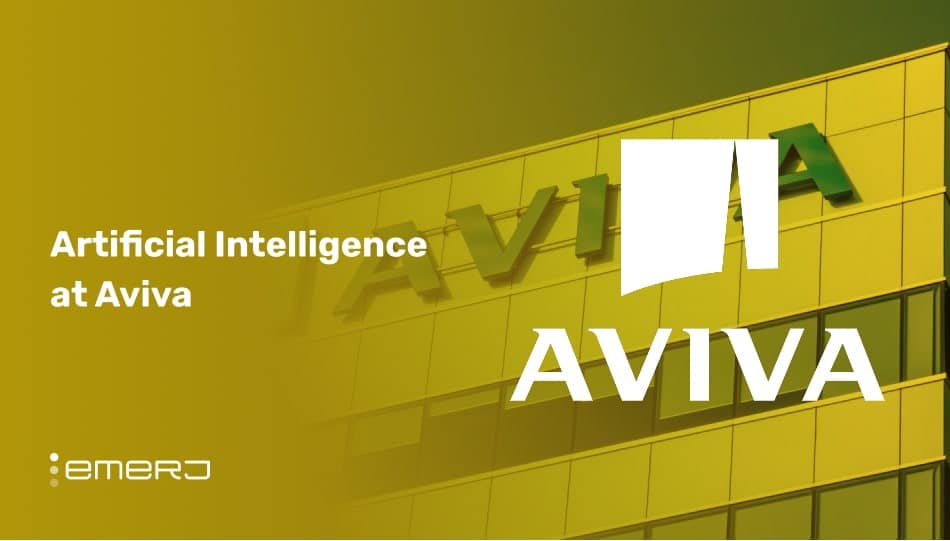I’m excited to announce that Emerj has “raised” a bit over a million dollars to fund our mission moving forward. The usual path of the 20-something who moves to Silicon Valley is to gain some bootstrapped traction, find some investors, and get a seed round raised. In our case, the funds came entirely from the sale of my eCommerce business, Science of Skill, which sold this February of this year.
Over the last four and half years, we went from zero to well over $2,000,000 in gross sales, with a 1100% three-year combined growth rate. This is a rare article where I’ll be writing as myself, Dan Faggella, outside of my immediate role as founder and editor.
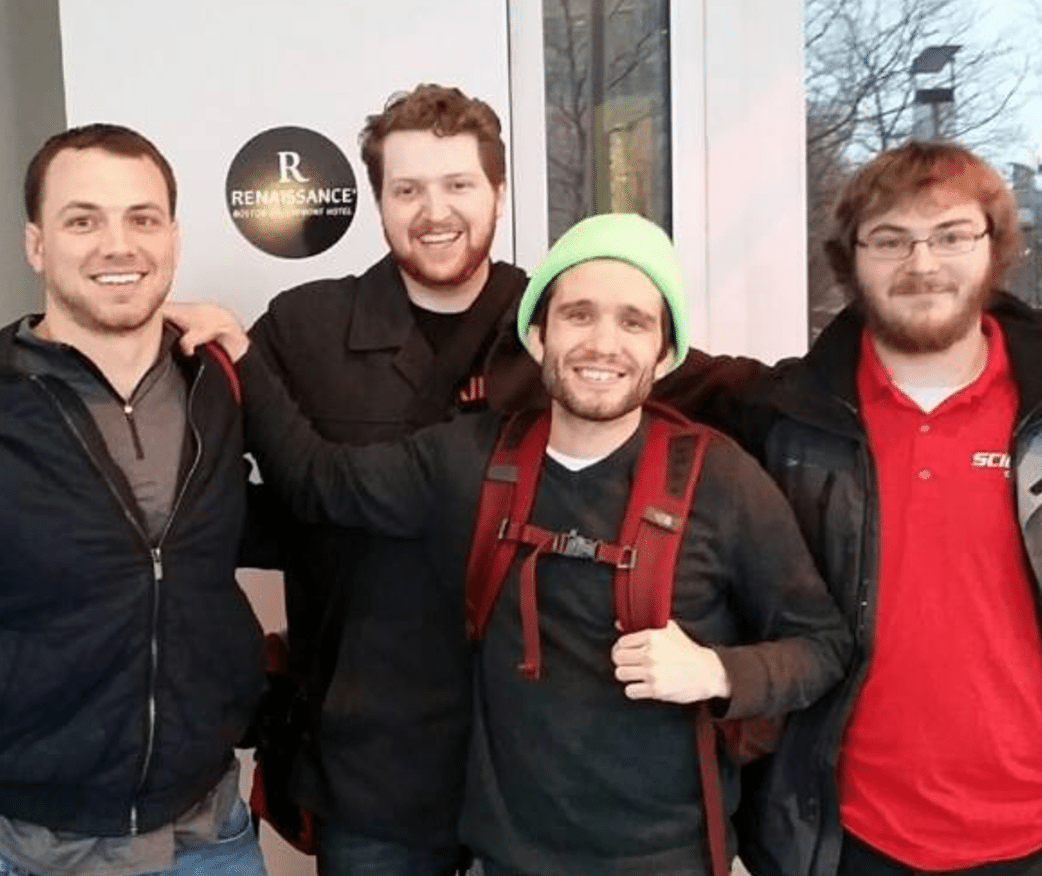
Despite how much material I’ve written on AI over the last few years, as many emails as I’ve sent out and conversations I’ve had with readers, I’ve never gone into much detail about the story behind the business. Some of the first questions that I received after posting about the recent business sale on Facebook were, “Did you already raise money for Emerj beforehand?” The answer to that question is, “No”, and the purpose of this article is to delve into the reasons why.
This may be one of the only times I ever bring the “back-story” to light for our readers — it’s not something I plan on doing often — but in this point of transition (and at the beginning of what I suspect will be a period of high growth), I want to open up about how we got here, why I took this path, and where we’re headed.
For those of you who are interested in the future direction of Emerj (and what you can expect moving forward), this will be a useful read.
Why I Bootstrapped Emerj with My Own Million, as Opposed to Raising Funds
The business model for Emerj seems to fit the bill for raising seed capital. At the end of the day, we’re building a marketplace for business professionals to find the right AI service providers across major industries (Healthcare, Finance, etc.) by providing a rich platform of user-generated content and free, in-depth market research on AI’s applications and implications. There are oodles of B2B marketplaces that have raised funds, and oodles of “service provider + consumer” marketplaces that have done quite well for themselves — including unicorns like Thumbtack and Houzz who also leverage content heavily to drive traffic and platform value.
With AI’s nearly inevitable embedding into most all of our technology products and services, the market for big data analytics is already estimated by many to be a $100 billion-dollar market (annually). While exact numbers are difficult to pin down, creating a compelling case for investors that “AI is going to permeate the technology world and buyers and sellers will need to connect” would be a far-from-impossible task.
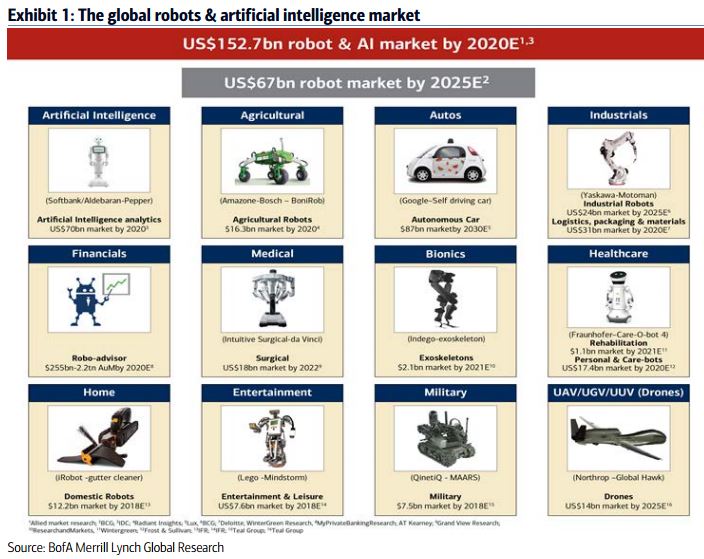
But I didn’t raise money. This company has been completely funded through the resources of my recent exit, and the profits from that business while I was operating it in tandem with Emerj.
As much gratitude as I have for the exit, I have for the team who grew Science of Skill with me, especially my right-hand man Tim Reiss, who was present from day one (a good friend, and the most loyal and hardworking soldier I’ve ever had on a team with me – slept on the floor of my apartment for for 2 years) as well as Dylan, Marcus and Greg, who joined a few years in and helped to really streamline operations as we scaled past $2MM in revenues. Others made a huge difference as well, Vlad Antohi helped up get organized on ASANA and set our first quarterly goals (which we needed badly in the early days!), and Kiley Lynch helped write some of our earliest content marketing pieces.
Despite it all I was on the verge of losing my mind. I have to admit that if I’d had to wait another year to exit, I might have turned the business over to my operating team, 100% owner-financed, just to get out. Science of Skill was — from day one — built to sell in order to provide seed funds for Emerj. I would have found a way to let the team take the reigns safely so they could see the reward of the exit, but personally I would have had to go.
Since the age of 24 (five years ago now), I had decided that intelligent (and potentially sentient) technology would be of the greatest conceivable ethical consequence, and that the prudent governance, transparency, and steering of these technologies would be the single focus of my life. This, in fact, was the moral impetus to start Emerj.com (though I had been writing essays and giving presentations on the ethics of AI and neurotech for nearly a year before Emerj was founded).
Some of the Emerj audience has been around for long enough to remember our early focus (which was almost entirely around the ethical considerations of transhumanism), but most of you are used to a consistent reference to ethical considerations, with most of the focus being on current and near-term industry applications of AI (which is where we’re firmly focused now).
Without a doubt, there is a massive business opportunity for Emerj, something that should excite our team and entice ambitious talent. What the team knows, however, is that the business model didn’t come first; the purpose — “the cause”— was the foundation. In fact, all the potential business model ideas that have been considered for Emerj have gone through the filter of “the cause.”
“The Cause” Behind the Company
The decision to fund Emerj myself is mainly due to the nature of the mission of the business, which is and always will be a moral one. As mentioned above, the business opportunities are grandiose in the wild world of AI, but the business models and profit streams that I’m open to are first filtered through the mission.
Long story short, through undergraduate school (focus: psychology / sports psychology) and most of grad school at UPENN (focus: cognitive science, the study of human wellbeing, the study of skill acquisition), I was convinced that the likely greatest “good” that I could contribute within my lifetime would be to develop a way to proliferate a global conversation around how these technologies develop; I think there will be a lot of voices needed to cross the dangerous precipice that technology has in store for us. I’ve done a good deal of speaking on this subject:
By the end of graduate school at UPENN, I had become reasonably convinced that the greatest ethical impact on sentient life would not come from new models and developments in psychology, but through the integration of intelligence and psychology with technology. I had seen some of the work of BrainGate at Brown University, and while I was wrapping up my thesis on skill development (IE: the science of human learning), the term “machine learning” was showing up on tech blogs, and IBM defeated the previous human champions of Jeopardy!
I’ll spare the you the philosophical explorations that from that point looped from Emerson to Bostrom, James Hughes to Bentham, but at the end of a year of brain-rattling I became convinced of the following*:
* The version of my basic moral ideas / grounding is grossly abbreviated in this article. If you have any points of contention with the argument, or you are interested in the more drawn-out version of the idea, feel free to reach out.
- Some degree of self-awareness (sentience) is necessary for an agent to have moral worth, and the more rich and intelligent sentience it has, the more ethically relevant is its experience and life (a topic I explore in more depth in my first TEDx).
- Within my lifetime, it is quite likely that some degree of sentience will either be created (AI), or that sentience and intelligence itself will be augmented (neurotech / nanotech), both of which involve literally tinkering the bedrock of ethical relevance and import.
- Given (2), it is reasonable to suppose that the trajectory of sentience and intelligence itself will be determined within my lifetime.
- This will likely be a rather precarious transition, wrought with gargantuan risk and potential for conflict, and navigating that chasm will potentially (or almost certainly) essentially for the survival and/or evolution of humanity and earth’s other sentient life.
- If (3/4) are the case, then this trajectory would denote an opportunity to do “good” (in a utilitarian sense) beyond all human conception, assuming entities beyond humans would be brought forth in the next two to six decades.
In order for businesses and governments to manage and develop these powerful (and dangerous) technologies, they should have as much as an objective perspective on:
- The applications of AI (their stage of development, who’s working on them, what they’re capable of, etc.)
- The implications of AI (in terms of their impact on business and governance, but also their likely ethical and social consequences)
From its very beginning, the point of Emerj (from our editorial focus, to our concerted research efforts, to our building of a wide network of respected researchers and executives) has been to proliferate an objective perspective on the implications and applications of artificial intelligence. I’m firmly of the belief that as many voices and perspectives as possible need to be collected in the open-minded and well-intended conversation around the future of intelligence, and I plan for us to aide that conversation as best we can.
No matter what business model we choose in the future, “proliferating the conversation” is goal #1, which is why you can expect to never pay for our market research, interviews, or case studies. We’ll have to find a way to sustain the business while keeping the critical ideas and objective research wide out in the open.
Undoubtedly there will be a lot of other worthy efforts in the AI space, from OpenAI to the Future of Humanity Institute to the myriad non-profits and NGOs started in the last 18 months to address AI’s ethical concerns. If there’s anything I think we can contribute, it’s being a bullhorn for a million smaller voices of folks working in the AI domain and it’s related sectors, highlighting practical use better than anyone else, and consistently encouraging consideration of the ethical “big picture.”
Those of you who were around for my early interviews with Ben Goertzel, Nick Bostrom, and Nayef Al Rodhan know that a huge portion of my early coverage of AI was almost exclusively about the ethical and transhuman ramifications. I continue to speak and write on these topics, though our editorial focus has shifted. The early “movers and shakers” in AI are less likely to be the nascent political parties and transhumanist groups — the early developments and direction of AI will (I believe) spurn from the business world.
Informing businesses and governments about the implications and applications of AI (as well as the social and ethical considerations) is the angle we’ve taken in playing a role in the promotion of the global conversation outlined above. In terms of informing the “stakeholders” (businesses, governments, NGOs) who will be guiding the early development of AI, I believe it’ll be the right position to take at this early phase.
The Journey of Bootstrapping – Selling My Last Company Was 3x Harder Than Anticipated
My last business — Science of Skill — was started with a single goal in mind: EXIT, and pour those funds into what would be Emerj. Nearly five years ago, I had only a vague idea for the details of the Emerj business model. I was blogging and giving talks at universities about the ethical considerations of AI and neurotech, and contemplating business models that might “inform and spread the conversation” about the implications of intelligent tech. At that time, I wasn’t sure if a platform or marketplace was going to be the plan. I considered starting an investment fund, leveraging video media as my primary channel, and a host of other ideas for how we could nail “the cause” and also grow a massively profitable global enterprise that would be able to attract tier-one talent.
What all those early business models had in common is that they basically couldn’t be profitable on day one. They would all involve seed funding, and I didn’t feel that sacrificing equity (and the moral mission) was worth raising funds. After 14 months of operations with the eCommerce business (read: the sacrificial lamb for Emerj) and a mere $40,000 per month in recurring revenues, I was certain I’d sell in just a matter of months and move on to Emerj full time. I was being invited onto podcasts and small business events to speak about the marketing automation strategies we were using to grow, and I was sure I’d hear from plenty of potential buyers.
Some of those podcasts are still around, including MIXERGY, Entrepreneur’s Journey, and others. I’m grateful to have learned a lot in our earlier days with people I met through podcasts. A quick flip, just as planned — we were operating with 25% net margin — I was juggling Emerj on the side and was ready sell for about $250,000 and move right along to my big mission, with some seed funding secured.
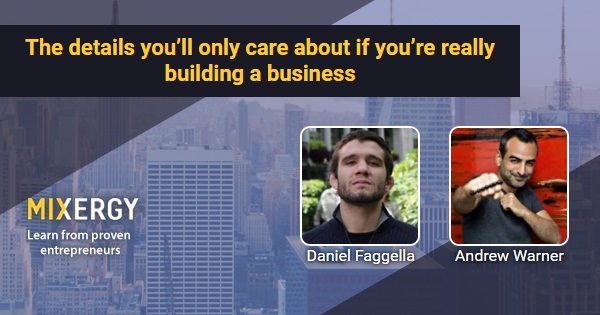
With $250,000, I wouldn’t be totally free, but with a little recurring consulting money from CLVboost (a six-figure email marketing consultancy I was running on the side), I figured I’d be all set to run Emerj full-time, after just 18 months in eCommerce.
That was the plan, anyway. Fortune did not comply.
Instead, the business took another three, full years to sell. I wasn’t aware of this at the founding of the company, but in an industry (in this case, digital publishing in the self protection niche) without strategic buyers looking for acquisitions, the vast majority of deals will be backed by banks and the Small Business Administration (SBA). What I also didn’t know is that banks:
- Require three years of annual tax returns,
- Do NOT factor historical growth or growth-rate into valuations,
- Rarely fund online businesses, because the banks prefer to stay with businesses they understand, (pizza shops, hair salons, trucking, etc.) even if those brick-and-mortar businesses rarely have exciting growth rates
For three years, I ran the eCommerce business and Emerj at the same time. It wasn’t until our last year of operations that I was able to spend under 40 hours a week (then eventually under 20 hours per week) on eCommerce. Most of my 75-90 hours of work were consumed with making money, not on my life purpose and the grander work with Emerj. My first hires for Emerj, the early research and interviews we did there, the brainstorming of the eventual Emerj business model, the TEDx presentations on AI and the talks at Universities, was all done in an unfortunately “part time” basis.
Had I known it would have taken four years instead of 12-18 months, I probably never would have started an eCommerce business; I would have found a couch to live on, scrounged for food, and bootstrapped Emerj with preliminary self-funding. But once I was 2, 2.5, and 3 years into the eCommerce business, I figured I had to make sure I got an exit, so I straddled both worlds for much longer than I ever would have hoped.
The upside of having to sell after four years instead of the 18-months-to-exit plan I had in mind when I started? There have been a few.
The Upside of Selling Later:
- I sold the eCommerce business for a little over a million instead of the $250,000 I was shooting for initially.
- Instead of hitting a 500k ARR, we got to safely over 2MM ARR.
- Instead of exiting in complete obscurity, we grew the business fast enough to make our odds of being in the Inc500 (for fiscal year 2016) extremely good. I don’t sleep any better with completely nominal accolades, but attracting talent in SF isn’t trivial, and the team we hire in the future will require assurance that they aren’t working for an incapable leader.
- I learned a tremendous amount about implementing systems, hiring and managing talent, dialing in key metrics, and leveraging digital marketing to drive an economic engine — and I plan to transition many of these skills to Emerj.
Of course, as with any situation there are also the downsides.
The Downside of Selling Later:
- Three additional years of my life were spent with 20-60 hours a week spent on “selling stuff to fund the cause”, instead of focusing 100% on “the cause” itself. We might have funds, but I can’t get those years back. There’s a specific Tantalus-like tormenting experience when you perpetually feel like you’re on the verge of finally exiting — for three years straight. That Antony-crossing-the-Alps feel. I’m not silly enough to confuse this with real suffering, but it was certainly a frustration I was eager to overcome in order to align my life with my moral purpose.
- During that span of time, tremendous progress was made in the domain of AI — particularly in machine learning and deep learning. The years 2015 and 2016 were excruciating because I wanted to spend all of my time diving into the science, interviewing executives, and building our media platform, but I was forced — during most weeks — to focus the bulk of my time on making money with Science of Skill. Being able to cover the exciting developments in machine vision / AI in marketing / AI in healthcare during this time would have been a real joy, and probably would have allowed us to build an AI-specific audience much faster than we did.
- “The cause” for Emerj and my own life purpose is informing and proliferating the public debate around how AI should be managed. Certainly in the near-term this will be important, (autonomous weapons, technological unemployment, etc.) but the grand consequences come with the development of AGI, conscious AI, and the potentially inevitable development of entities with greater sentient depth (and possibly moral worth) than humans. The year 2015 saw a slew of interest in this space, including the establishment of OpenAI, and all I could do was conduct interviews, write articles, and manage content creation part time. The year 2016 saw even more of the same. When I first determined intelligent tech to be the mission of my own life, there existed the IEET and Bostrom’s Oxford Future of Humanity Institute. Now, there are literally dozens of organizations giving serious thought to the ethical considerations of AI. This was extremely heartening to see, but it was heart wrenching to feel as though I might not be able to contribute meaningfully in a way that might aide the process, or help some of the organizations that are working diligently on these matters.
Selling didn’t feel good as an “accomplishment.” The significance of the exit was exclusively for freeing up my time and resources entirely for the cause — which brings us to now.
The Future – What to Expect at Emerj

Finally, Emerj is the only thing I have to focus on. I’m extremely appreciative of everyone who’s been reading our material, commenting on our research, and submitting ideas in surveys over the last few years as I’ve straddled both worlds. While I wouldn’t have chosen the roundabout path of self-funding, it has the fortunate up-side of leaving me in a position to control the destiny of the company beyond what will make a dollar today, and beyond where a VC might steer us tomorrow. I would love to have been “full time” earlier, but it’s good to be free and open to options now.
The helm is clear for the moral purpose of the company, and the business model options are as wide open as I could ever ask for.
While we have a reasonable economic “runway” for Emerj at present, its eventual role in the ecosystem will likely be around connecting businesses with AI product and service providers in the marketplace, which (to a lighter degree) is already something that people use us for every day.
My gameplay is to ensure that we fulfill the mission, and that our market research and case studies remain completely free. With the goal of informing a global conversation about the applications and implications of AI, making a “walled garden” was never the plan here. Below is a bit of what you can expect from Emerj in the coming months:
- More no-hype, plain-language coverage of what’s working now in AI, which industries are being disrupted, and what you (as someone in business or government) could / should do about it
- More unique, in-depth market research on AI in various industries and sectors
- More use cases and true “case studies” of AI in action, with details in the transferrable lessons that any business can take from these use cases
- More direct insights from industry luminaries from top AI executives and researchers
- We’ll be staffing up a bit on the development and research side — excited to get a ton more accomplished!
- In the coming few months, we’ll also be going through a re-branding that will coincide with some additional features (all of which are based on feedback from active readers like you, who’ve been kind enough to chat about their needs and what they’ve benefitted from most with Emerj thus far)
As we move forward with more research, more interviews with industry leaders, and more focus on global AI insight, I suspect that I’ll develop many of my most promising ideas from the same group of readers who’ve inspired out material thus far. With the eCommerce business sold at last, I plan to have more time to chat with readers, collect feedback, and build our platform to be as useful as possible.
All in all, I’m relieved to be able to focus completely on the cause and to align Emerj in that direction each day, as we expand and grow in the coming years. Thanks to those of you who’ve been with me for years, as well as those of you who are just recently tuning in. The journey has just begun!


